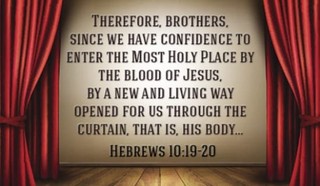- Recent Translations
- All Translations
Hebreos 10:11
Share
Settings
Hebreos 10:11 Meaning and Commentary
And every priest standeth daily ministering
The Alexandrian copy, one of Stephens's, the Complutensian edition, the Syriac and Ethiopic versions, read, "every high priest"; who might minister daily, if he would; but since the daily sacrifice was generally offered by the common priests, these are rather designed. The apostle passes from the anniversary sacrifices offered by the high priest on the day of atonement, having shown the insufficiency and imperfection of them, to the lambs of the daily sacrifice, which were offered morning and evening, and whatsoever else might be daily offered on other accounts; and which he also shows are equally ineffectual to take away sin; almost every word he uses shows the imperfection of the priesthood of Aaron, and serves to illustrate the priesthood of Christ. When he says "every priest", it supposes there were more than one, as indeed there were many, not only in succession to one another, but together, having different parts of service to perform; and everyone of them "standeth" at the altar, showing that his work was not done; and the present tense is used, because sacrifice in fact had not ceased at the writing of this epistle, though of right it ought to have done; and he stood "daily ministering"; every day, and sometimes often in a day, and always morning and night, ( Exodus 29:38 Exodus 29:39 ) The priest always stood to minister, ( Deuteronomy 18:5 ) . Hence the Jews say F20, there is no ministration or service, (dmwem ala) , "but standing"; and perhaps some reference may be had to (twdmem) , the "stations" F21, or stationary men, who were always upon the spot at Jerusalem, to offer for such as were at a distance.
And offering oftentimes the same sacrifices;
as a lamb in the morning, and another at evening; and if it was a burnt offering, or a sin offering, or an offering for the purification of a woman, or for the cleansing of the leper, they were always the same: and this frequent offering, and the offering of the same things, show that they were such
which can never take away sins;
for notwithstanding these many and repeated offerings, even the sins of Old Testament saints remained to be atoned for by Christ; see ( Romans 3:25 ) ( Hebrews 9:15 ) .
F20 Jarchi in Deut. xviii. 5. Maimon. Biath Hamikdash, c. 5. sect. 16.
F21 Misn. Taanith, c. 4. sect. 2.

